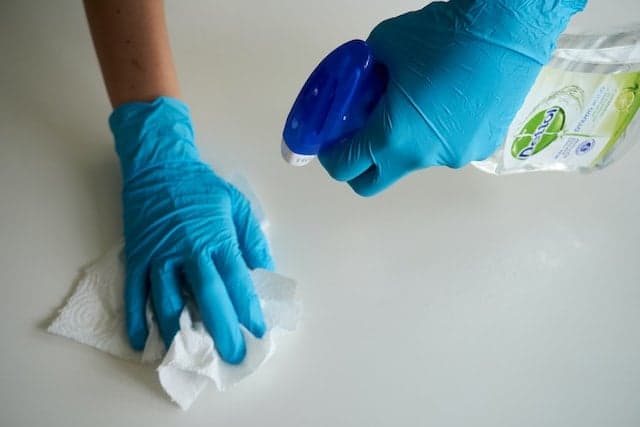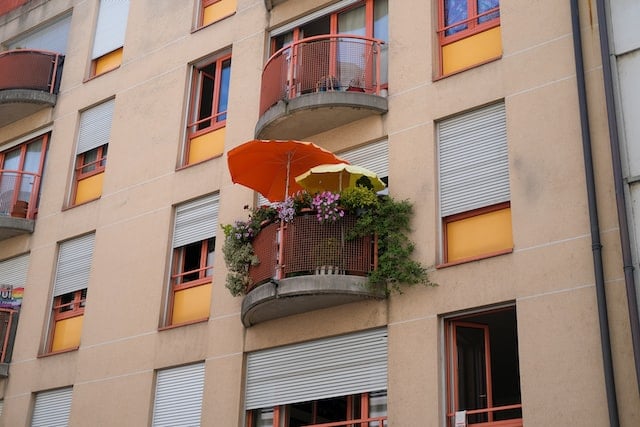EXPLAINED: How to legally hire a cleaner in Switzerland

In today’s busy world, cleaners are indispensable help for many households, but you may be surprised to find that hiring one (legally) in Switzerland is not as straightforward as you think. Here’s how you do it the right way.
First things first, there are two ways to hire a cleaner legally: you can become an employer yourself, or use a cleaning agency that will put you in touch with a cleaner. The latter will also take care of all the administration and is generally far more convenient (if your cleaning person is off sick for instance, you will be provided with a different cleaner) albeit, more expensive. The agency also assumes all ancillary costs such as AHV and insurance.
However, some people prefer to be more in control and hire a cleaner on their own. Here’s the lowdown on how to do that:
Draw up a contract
First, it is crucial to sit down with your cleaner and establish what kind of tasks and in what capacity they will be required to work for you. While a written employment contract is not mandatory, it is often recommended so you can both agree on the most important key points such as wages, payment method, working hours and areas of responsibility.
Additionally, if your cleaner is not Swiss, make sure they have the necessary work permit. If they are a recognised refugee or temporarily admitted in Switzerland, their employment must be reported prior to beginning to work for you.
After you have drawn up a contractual agreement, you will need to register with your local Ausgleichkasse. In order to register your cleaner, you will need to provide their necessary personal information, such as their AHV number. Ask your cleaner if he or she has a spouse and if they already receive family allowances. If not, you must also register them with a Familienausgleichskasse.
READ MORE: What is the average salary for (almost) every job in Switzerland?
Wages
Cleaners in Switzerland earn an average of 31 francs per hour, but how much you choose to pay your cleaner is ultimately up to you – and varies from canton to canton.
Should your cleaner be required to work irregular hours, make sure to agree an hourly wage including holiday allowance. A holiday surcharge of 8.33 per cent is usual across Switzerland and means that the salary is paid in for four weeks of vacation per year. Alternatively, should you require your cleaner regularly, a monthly salary can be agreed.

A home in Geneva. Photo by Edi Bouazza on Unsplash
On January 1st 2023 the Swiss Federal Council adjusted the minimum wages for domestic workers working over 5 hours a week to an hourly rate of CHF 19.50 to 23.55.
READ ALSO:
However, when agreeing on a wage for your cleaner do not forget about the deductions. You will have to deduct 6.4 percent from the gross salary for AHV and IV contributions as well as unemployment insurance and 5 percent withholding tax.
If you register for the simplified accounting procedure – such as with KLARA Home, a digital assistant that helps you hire and insure domestic workers in accordance with the law -, your employee’s taxes will be automatically deducted from their wage, and it spares you having to fill out a wage statement at the end of the year.
Register them with an approved accident insurer.
As a rule, a cleaner will only work a few hours per week for any household. Despite this, you will have to make a few key arrangements for this work to be conducted legally.
Remember that every person living and working in Switzerland must be registered with an accident insurer, so be sure to register your cleaner with one, as health insurances only cover for non-occupational accidents. Should you require your cleaner for more than eight hours a week, you must also insure them against non-occupational accidents.
What about other obligations?
Once your cleaner is registered, all you need to do is report their gross salary to the compensation office at the end of the year. The insurer will then create a statement of the social security contributions and bill you for them.
Comments
See Also
First things first, there are two ways to hire a cleaner legally: you can become an employer yourself, or use a cleaning agency that will put you in touch with a cleaner. The latter will also take care of all the administration and is generally far more convenient (if your cleaning person is off sick for instance, you will be provided with a different cleaner) albeit, more expensive. The agency also assumes all ancillary costs such as AHV and insurance.
However, some people prefer to be more in control and hire a cleaner on their own. Here’s the lowdown on how to do that:
Draw up a contract
First, it is crucial to sit down with your cleaner and establish what kind of tasks and in what capacity they will be required to work for you. While a written employment contract is not mandatory, it is often recommended so you can both agree on the most important key points such as wages, payment method, working hours and areas of responsibility.
Additionally, if your cleaner is not Swiss, make sure they have the necessary work permit. If they are a recognised refugee or temporarily admitted in Switzerland, their employment must be reported prior to beginning to work for you.
After you have drawn up a contractual agreement, you will need to register with your local Ausgleichkasse. In order to register your cleaner, you will need to provide their necessary personal information, such as their AHV number. Ask your cleaner if he or she has a spouse and if they already receive family allowances. If not, you must also register them with a Familienausgleichskasse.
READ MORE: What is the average salary for (almost) every job in Switzerland?
Wages
Cleaners in Switzerland earn an average of 31 francs per hour, but how much you choose to pay your cleaner is ultimately up to you – and varies from canton to canton.
Should your cleaner be required to work irregular hours, make sure to agree an hourly wage including holiday allowance. A holiday surcharge of 8.33 per cent is usual across Switzerland and means that the salary is paid in for four weeks of vacation per year. Alternatively, should you require your cleaner regularly, a monthly salary can be agreed.

On January 1st 2023 the Swiss Federal Council adjusted the minimum wages for domestic workers working over 5 hours a week to an hourly rate of CHF 19.50 to 23.55.
READ ALSO:
However, when agreeing on a wage for your cleaner do not forget about the deductions. You will have to deduct 6.4 percent from the gross salary for AHV and IV contributions as well as unemployment insurance and 5 percent withholding tax.
If you register for the simplified accounting procedure – such as with KLARA Home, a digital assistant that helps you hire and insure domestic workers in accordance with the law -, your employee’s taxes will be automatically deducted from their wage, and it spares you having to fill out a wage statement at the end of the year.
Register them with an approved accident insurer.
As a rule, a cleaner will only work a few hours per week for any household. Despite this, you will have to make a few key arrangements for this work to be conducted legally.
Remember that every person living and working in Switzerland must be registered with an accident insurer, so be sure to register your cleaner with one, as health insurances only cover for non-occupational accidents. Should you require your cleaner for more than eight hours a week, you must also insure them against non-occupational accidents.
What about other obligations?
Once your cleaner is registered, all you need to do is report their gross salary to the compensation office at the end of the year. The insurer will then create a statement of the social security contributions and bill you for them.
Join the conversation in our comments section below. Share your own views and experience and if you have a question or suggestion for our journalists then email us at [email protected].
Please keep comments civil, constructive and on topic – and make sure to read our terms of use before getting involved.
Please log in here to leave a comment.